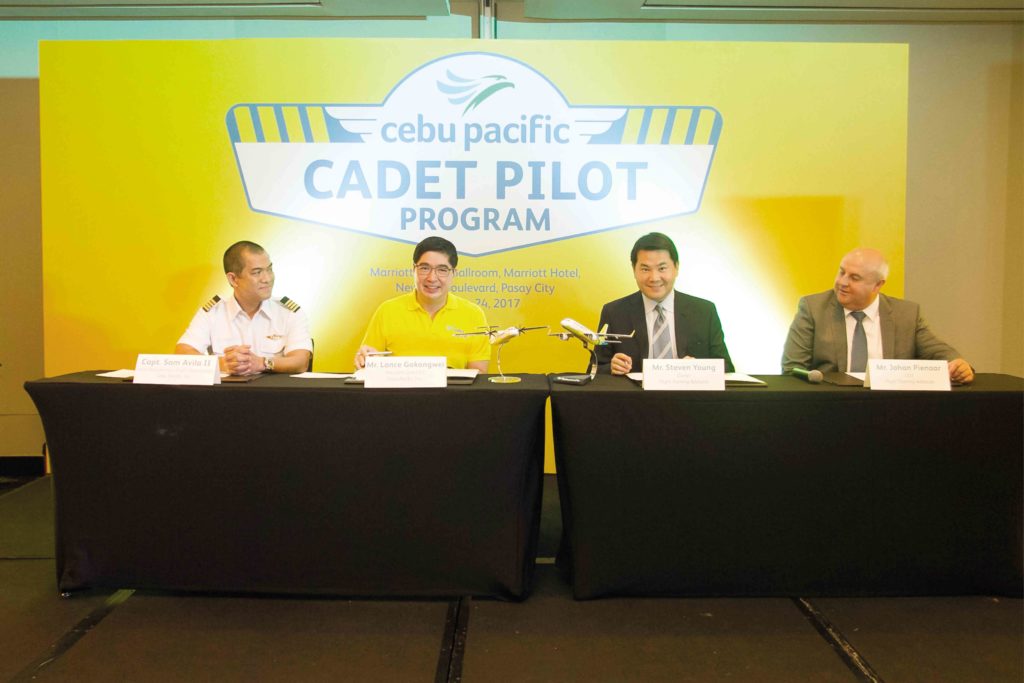
LANDMARK DEAL(From left) Capt. Samuel Avila II, vice president for flight operations of Cebu Pacific; Lance Gokongwei, Cebu Pacific CEO; Steven Young, owner of Flight Training Adelaide (FTA); Johan Pienaar, FTA CEO.
Being a pilot is a high-risk investment, says low-cost airline Cebu Pacific (CEB), with training fees amounting to up to almost P4 million for a 12-month training program.
That’s not counting license and certification fees, plus the uncertainty of employment, says Capt. Sam Avila II, CEB’s vice president for flight operations.
“Only those who can afford [all of those] get the chance to become pilots,” Avila says.
These are circumstances the airline hopes to change through its 56-week Pilot Cadet Program, where chosen candidates will undergo integrated flying training and take up flight theory and education courses to become licensed commercial pilots.
After finishing the program, the cadet-pilots are guaranteed posts in CEB as first officers.
The program is in partnership with Flight Training Adelaide (FTA), which will conduct the training in its “purpose-built campus.”
“The thing that attracted us to FTA is that they run it really like an airline,” Avila says. “And it’s really a campus. I was there recently; there are dorms, a gym, and the canteen even has a Filipino cook. I was eating there and I realized, hey, this is arroz caldo! So I told them, you’re going to cook adobo for our pilots, okay?”
FTA is a provider of world-class, customized aviation training solutions for the fixed wing and rotary wing industry.
Founded in 1982, FTA is focused on producing future airline and helicopter captains, rather than simply training cadets to obtain a license.
CEB will initially shoulder the tuition cost of around $205,000.
The company is investing a total of $25 million for the program, which will run for five years.
Successful graduates, once employed with the airline, will then pay for the cost of the program through salary deduction over 10 years.
The program is open to all Filipinos who are college graduates, are proficient in English and hold passports valid for at least two years prior to the start of training.
Three batches of 16 qualified candidates will be sent every year for five years.
Screening starts online (visit https://bit.ly/CebCadetPilots), followed by an on-site one for core skills and pilot aptitude tests, among other exams which will require a fee of P17,000.
The screening will be done jointly by CEB and FTA.
The first batch of candidates are expected to start training in the first quarter of 2018, he says.
They will first undergo learning modules and training for 52 weeks before earning their diplomas in Aviation.
The cadet-pilots will then move on to training on a flight simulator, and then flight time on an actual aircraft, to complete the licensing requirements of a commercial pilot.
They will then return to Manila for a four-week training to obtain their pilot’s license under the Civil Aviation Authority of the Philippines.
“The program will allow us to train homegrown Filipino pilots with best-in-class international standards,” says CEB president and CEO Lance Gokongwei. “Through this program, we aim to have continued access to a pool of highly skilled aviators that would support our growth.”

